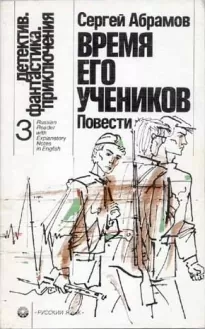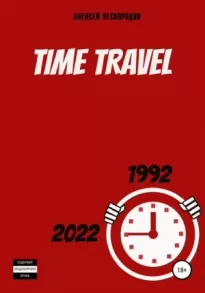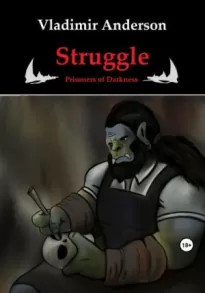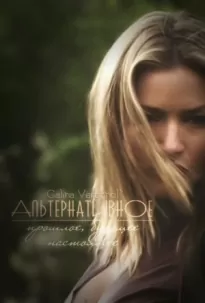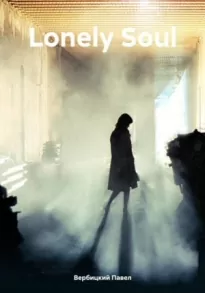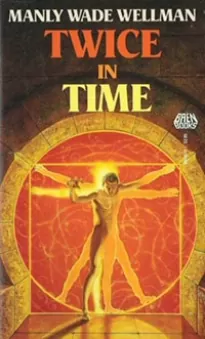Разговорный английский
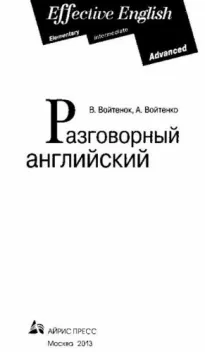
- Автор: Владимир Войтенок
- Жанр: Самиздат, сетевая литература
Читать книгу "Разговорный английский"
M. All the better. We might go for a walk then.
K. That’s a good idea. We’ll have almost two hours on our hands.
M. It’s your turn now, isn’t it?
K. Well, here are the tickets, Row 10, Seats 11 and 12.
M. These are good seats. I hate sitting far from the screen.
K. So do I. Well? What about -.
M. Yes, let’s go.
3. AT A CONCERT
ANN. What good seats we have got! We are lucky, aren’t we?
MARY. We are, indeed. What are the highlights of tonight’s programme, do you know?
ANN. Well, it’s a mixed programme, but the crowning interest of the concert will be in the second part.
MARY. Say, Ann, there goes the usher. Get a programme from him, will you?
ANN. Well, here it is. Let’s see what is on. Now, didn’t I tell you?
MARY. Tell me what?
ANN. That the most interesting part of the concert will be the second.
MARY. You did say something to that effect, but could you let me have a peep at the programme?
ANN. Why, yes! The second part will be a violin recital, see?
MARY. I do. How fortunate we are. We are going to hear Eugenie
N. play.
ANN. That’ll be great. I like to hear him play.
MARY. So do I. The violin sings and soars when he plays.
ANN. Yes, his technique is indeed brilliant. I saw him once on the screen.
MARY. And I happened to hear him on the air some time ago.
ANN. Who’s the accompanist?
MARY. A certain George M. I don’t know him, do you?
ANN. Neither do I. What comes first on the programme?
MARY. Ssh! They’re about to begin.
4. RADIO
G. Why! I thought you were at the football match, Tom.
T. No luck. Couldn’t get a ticket. And you?
G. Well, I was to go on commission, you see, and then it was postponed. But what about coming over to me?
T. And getting it on the wireless?
G. Yes.
T. That’s a good idea. We’ll be in time for it, I suppose.
G. Oh yes, I live close by. I’ve got a new set, don’t you know?
T. No, I didn’t know. A good one?
G. Yes. An all-wave set with push-button control. You will see it presently.
T. With a recorder?
G. Yes. It works on miniature valves.
T. Does it? It should be a good one then.
G. It is. Well, here we are. Come in.
T. Anybody at home?
G. No. All have gone out. This way, Tom.
T. Oh, it’s a beauty, it is. A 13 valve set, isn’t it?
G. Yes, and how do you like the shape of the plastic cover? Isn’t it nice?
T. It is.
G. I intend to install a remote-control extension1.
T. What for?
G. Why! You can switch the set on and even tune in from any of the rooms.
T. Really! I’ve never heard of that before.
G. Well now, let’s switch it on. It has a magic eye tuning2, see?
T. Yes. It cost you a pretty penny, didn’t it?
G. It did. I’d been saving up money for quite a time. It was my dream to have one like this, you know.
T. Yes.
G. Well, I’ve tuned in. Here’s the announcer speaking.
T. I can hear him as plain as ever.
Vocabulary Notes
1 remote-control extension — ди- 2 magic eye tuning — настройка станционное управление по электронному индикатору
5. DANCING
G. I say, Fred, do you want a ticket for a dance? I mean, two tickets?
F. How did you come to get them? I didn’t know that you were a dancer.
G. My sister gave me them. She’ll be engaged this evening — an appointment, I suppose.
F. And why don’t you want to go?
G. Well, I don’t mind walking or running or climbing, but I’m the world’s worst dancer.
F. I don’t think you can be worse than I am.
G. Oh, yes, I am. Why, a girl once asked me if I danced. I never spoke to her again.
F. Why not? It was quite a polite question.
G. Yes, but I was dancing with her when she asked me. Can you beat that?
F. I can. Well, I was dancing with a girl once and I asked her if she had ever danced with a worse dancer.
G. And what did she answer?
F. She didn’t say a word.
G. Well?
F. So I repeated the question.
G. And -.
F. And you know what she said?
G. How can I know?
F. She said, “I heard you the first time. I was trying to think.” How do you like it?
G. Well, I am under the impression that we are the most “wonderful” dancers in the world, aren’t we?
F. Sure, we are.
G. Yes, but what am I to do with these tickets? What about ringing up —?
T. Hello, you two.
F. Why, it’s you Tom!
G. Talk of the devil and he is sure to come. What are you doing this evening, Tom?
T. I?
G. You, of course, I have two tickets for a dance. Do you want them?
T. Well, but are you quite sure you don’t want the tickets yourself? G. Want them! If you can go there for me, you are my best friend. T. And you, Fred?
F. If you go there for me, well, you’ll be my bosom friend forever, Tom.
T. Indeed? Well, it’s worth while to have two good friends. Where are the tickets?
G. Here you are. It’s at the Ritz.
T. Thank you.
XII. Sport
1. FOOTBALL
The Football Match Between England and Austria
England:2 — Austria:2
England won the toss and the Austrians kicked off into the sun1. Two free kicks were given against England in the first two minutes, and the English defence cleared them well.
After 15 minutes’ play the Austrian centre-forward, Buzek, broke away on the left and McDonald, the goalkeeper, did well to tip a fierce drive over the bar.
A minute later the Austrians opened the scoring with a magnificent goal, which McDonald had no chance of saving.
Left-half Koller, getting possession about 25 yards out, put in a dynamic drive which sped like a bullet into the top right-hand comer of the goal.
The English forwards pressed continuously, but to no avail. In the 28th minute Douglas shot weakly from close in2, while at the other end Buzek lost a great chance of making it two for Austria by shooting inches wide of the uprights3 from close range.
Three minutes later Haynes had a wonderful chance to equalize, but he was hesitant and was robbed. After 35 minutes’ play the English attack had five or six chances of equalizing, but their shooting was wild4.
England continued to do well in midfield, but the forwards were completely inept. Two minutes from the interval Robson was dispossessed by the goalkeeper only feet away from the goalmouth.
There was a concluding thrill when goalscorer Koller again put in a blinding shot from well out5 but this time he was inches wide of the upright.
England were all over Austria on the resumption, but they just could not get in a good scoring shot. Twelve minutes after the interval, however, England equalized with a rather lucky goal. It was J. Haynes, who from two yards out6 put the ball in the back of the net.
England continued to dominate the play, but by wild and weak shooting in front of the goal they failed to press home their advantage7.
In the 10th minute the Austrians went ahead with another goal from well out. Alfred Koerner, the inside-left, put in a stinging drive from nearly 25 yards out which hit the upright and glanced off into the net to put Austria ahead 2 = 1.
Almost from the restart England netted8 again, Robson scoring from just inside the penalty area. From the Press stand9 it looked a perfectly good goal, but the referee ruled it no goal10 presumably for hands.
Four minutes later Kevan equalized, rushing the ball through from close in from a pass by Haynes.
Both sides fought hard for the winning goal1 11, but neither goalkeeper was seriously troubled in the closing stages and the game ended in a stalemate12.
From “Daily Worker"
Vocabulary Notes
1 to kick off into the sun — начинать игру против солнца
2 from close in — с близкой дистанции
3 inches wide of the upright — в нескольких дюймах от штанги
4 wild — неточный
5 well out — с значительного расстояния от ворот
6 two yards out — два ярда от ворот
7 to press home their advantage — использовать свое преимущество
8 to net — забить гол
9 Press stand — трибуна прессы
10 to rule it no goal — не засчитать гол
11 winning goal — выигрышный гол
12 stalemate — ничья
2. ON THE TRACK
In the most fantastic mile race ever run, N., the 20-year-old wonder, smashed the world record in 3 min. 54.5 sec.
From the start the pace was extremely hot and M., who had made a particulary smart beginning, completed the first quarter in 56 seconds. M. also led at the half-mile mark, but N. set about the task of overhauling M., and on the third lap moved up. He and M. increased the pace and the rest of the field began to tail off1.
As they went into the last lap, N. came up with M. It was on the final bend2 that N. made a tremendous effort and shot into the lead putting himself some yards ahead of M.
With about 50 yards to go3 N. brought the cheering crowd to its feet as he stretched his lead over M., and reached the tape in 3 min. 54.5 sec.
N. was rather tired after his effort. However, despite his tremendous performance, he still had enough energy to do a lap of honour4 in front of the cheering crowd. Before he stepped up the rostrum5 he was garlanded with a laurel wreath6.
Vocabulary Notes
1 to tail off — отставать
2 final bend — последний поворот
3 with 50 yards to go — за 50 ярдов до финиша
4 lap of honour — круг почета
5 rostrum — пьедестал
6 to be garlanded with a laurel wreath — быть увенчанным лавровым венком
3. ON THE ICE
(Peter and his sister, Ann, have come to the skating-rink where they happen to meet their friend, Paul.)
PETER. Well, Ann, have you put on your skates?
ANN. Yes, I have. I say, Peter, isn’t that Paul over there?
PETER. It is, indeed. Hey, Paul!
PAUL (Coming over.) Why, hello, Peter! Oh, that’s you, Ann? How do you do?
ANN. How do you do, Paul? You come here frequently, I suppose, don’t you?
PAUL. Rather. Skating is my hobby, don’t you know?
PETER. Say, Paul, is the ice good?
PAUL. Not very. A bit soft.
PETER. Well, let’s go. Come on, Ann.
ANN. Oh, my, I can’t stand on my feet!
PAUL. But can’t you skate, Ann?
ANN. I? Why, this is the first time I’m ever on skates! Peter has promised to teach me.
PETER. So I have. But Paul is (by far) a more experienced skater than I. Couldn’t you possibly give her a hint, Paul, how to learn the trick.
PAUL. With the greatest pleasure. Well, Ann, hold on to my arm. Now, let’s go on the ice.
{On the ice.)
ANN. My, how slippery it is! I’m afraid to lift my foot.
PAUL. Don’t get worried. Give me your hand, please. Now, bring out your right foot the way I do it. That’s it. Now your left. ANN. Oh, I’m losing my balance!
PAUL. Steady, Ann. Now, let’s try it again.
ANN. I look like a baby, trying to walk, don’t I?
PETER. You do, indeed. Well, I’m off for a run. Good luck to you, Annie.
{After some time.)
PETER. Well, how are you getting on, Annie?
PAUL. Oh, she’s doing fine. {To Ann.) You are tired, aren’t you?
ANN. Rather. Let’s sit down on this bench for a while.
PETER. I say, Paul, are you good at figure cutting?
PAUL. Well, there is nothing to boast about.
ANN. Oh, do show us how you skate, Paul.
{Paul begins to cut figures on the ice.)
PETER. Well, Ann, how do you like it?
ANN. Oh, it’s lovely! He simply glides on the ice.
{Paul comes up to them.)
PETER. You did fine, Paul. You have mastered the technique rather well, I should say.
ANN. Oh yes, I wish I could skate like that.
PAUL. Oh, you’ll learn to skate even better, by and by, Ann. Patience and a great deal of training.
PETER. I say, Paul, what’s wrong with my skates? They slip when I’m on the ice.
{Paul examines them.)
PAUL. Why, they are blunt. You must have them sharpened.
PETER. Can it be done here?
PAUL. Certainly. You’ll have to go into the hut for that. Well, Ann, are you ready for another lesson?
ANN. Oh yes. You are so kind, Paul.
4. SWIMMING
Every person should endeavour to acquire the power of swimming. The exercise is a healthy accompaniment of bathing.
The art of swimming is, in reality, very easy. Do not attempt to learn to swim too hastily. Belts may be of service for supporting the body while one is learning what is called the stroke, or that manner of drawing in and striking out the hands and feet that is necessary to produce progressive motion.
But you will be no swimmer till you can place confidence in the power of water to support you.
Choose a place where the water deepens gradually, walk into it till it is up to your breast; then turn round your face to the shore, throw yourself forward and begin striking out with your hands and feet so as to prevent the lower part of the body, that is the legs, from sinking; keep your head as high as possible above the water.
During the great heat in summer there is great danger to throw oneself into cold water — one is apt to be seized with a cramp.
Do not forget to cool yourself before getting into the water.
XIII. Town
1. A TOWN
A town is a large number of houses, schools, hospitals, theatres, factories, works and other buildings built near each other. All these buildings are divided into blocks by streets. Short narrow streets that join larger ones together are called lanes. On one side of the streets the buildings have even numbers, on the other — odd numbers. The main streets are usually paved with stone or asphalt. Along the streets run carts, cars, buses and trolleybuses. In large towns tramways are laid down the wider streets, along which tramcars rattle with great noise. On both sides of the streets are raised pavements on which people walk.
In very large towns, which are generally called cities, countless pedestrians walk along the foot-pavement forming two smoothly- flowing ceaseless currents. In England walkers keep to the right, while vehicles on the road keep to the left.
People usually cross the streets at special places, called crossings. When the traffic is very heavy, the policeman, who regulates the movement of the cars and buses, has to stop the never-ending stream by raising one hand, thus affording the pedestrians a chance of crossing the street. On the foot-paths, close to the gutter, stand dustbins, into which refuse is put.
In large towns the ground floor and the first storeys of the houses, that line the principal streets, consist of shops. These shops present most attractive features. The windows are very large and the plates of glass often reach almost to the pavement. It is interesting to look at the shop-windows where the articles on sale are displayed.
In the centre and in important parts of a large town, there are squares, gardens and market places.
A town is generally situated near or on a river across which bridges are built. In almost all towns there are places of interest, which a stranger would be invited to see — monuments, cathedrals, museums, etc.
A town is governed by a council, the head of which is styled the mayor.
2. IN THE TRAM
G. Hello, Bill! I thought you weren’t going to turn up. You’re ten minutes late.
B. (I’m) sorry to have kept you waiting, old chap. Where is, Ann, I wonder? Oh, here she is stepping out of the bus. Let’s go and meet her.
BOTH. Good morning, Ann.
ANN. How do you do? Have I kept you waiting long? I don’t know how it is, but I never can get anywhere in time.
G. Well, shall we go to K. or has anyone any other suggestion?
ANN. K. is all right for me. You, Bill?
B. Yes. We can go anywhere from there, can’t we?
G. Good. Now, let me see. Route 5 goes there, doesn’t it?
B. Yes, and No. 9 goes there too — the stop is a few blocks down this street.
ANN. There comes our tram.
B. Oh, what a rush.
G. Say, Bill, you go ahead and keep a seat for Ann.
ANN. No, don’t please. Let’s stand outside on the platform. It’ll be ever so much nicer there than inside the crowded car.
B. But this is a new car with the entrance in the middle, so we won’t be able to avoid the crowd. Step in, please.
ANN. My! The tram is choked up with people.
CONDUCTOR. Move ahead, please.
G. Hadn’t we better make our way to the exit?
В. I don’t think we should. We go almost to the end.
ANN. There’s room in that comer over there. Let’s ... My! The way it jolts. (To a passenger.) Excuse me, please.
PASSENGER. That’s all right.
CONDUCTOR. Fares, please.
G. Three, please.
ANN. I wonder why they don’t have more trams running on Sundays? These tram rides are horrible.
B. They are indeed, especially on a day like this. But isn’t it time to move ahead?
G. Yes! I think it is. (To a passenger.) I say, young man, could you possibly move a little to the left. Come on, Ann.
ANN. Well, here we are, after all.
3. A TAXI
